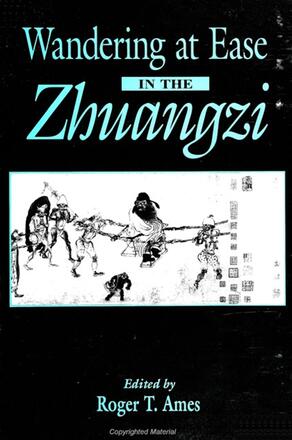
Wandering at Ease in the Zhuangzi
Alternative formats available from:
A diverse collection of interpretive essays on the third-century B. C.E. Daoist classic, the Zhuangzi, which continues the long commentarial tradition on this work and underscores its relevance to our own time and place.
Description
Chinese philosophy specialists examine the Zhuangzi, a third century B. C.E. Daoist classic, in this collection of interpretive essays. The Zhuangzi is a celebration of human creativity—its language is lucid and opaque; its images are darkly brilliant; its ideas are seriously playful. Without question, it is one of the most challenging achievements of human literary culture. Thematically, the Zhuangzi offers diverse insights into how to develop an appropriate and productive attitude to one's life in this world. Resourced over the centuries by Chinese artists and intellectuals alike, this text has provoked a commentarial tradition that rivals any masterpiece of world literature.
Wandering at Ease in the Zhuangzi continues the interpretive tradition as Western scholars shed light on selected passages from the difficult text, offering the needed mediation between available translations of the Zhuangzi and the reader's process of understanding. Taken as a whole, this anthology is a primer on how to read the Zhuangzi.
"I find throughout the work an excellent balance between philological and philosophical analysis. The style and prose of most of the essays are pleasing and easy to follow. The topics will appeal to a wide range of readers with a disparity of interests. "— Ewing Y. Chinn, Trinity University
Reviews
"I find throughout the work an excellent balance between philological and philosophical analysis. The style and prose of most of the essays are pleasing and easy to follow. The topics will appeal to a wide range of readers with a disparity of interests. "— Ewing Y. Chinn, Trinity University